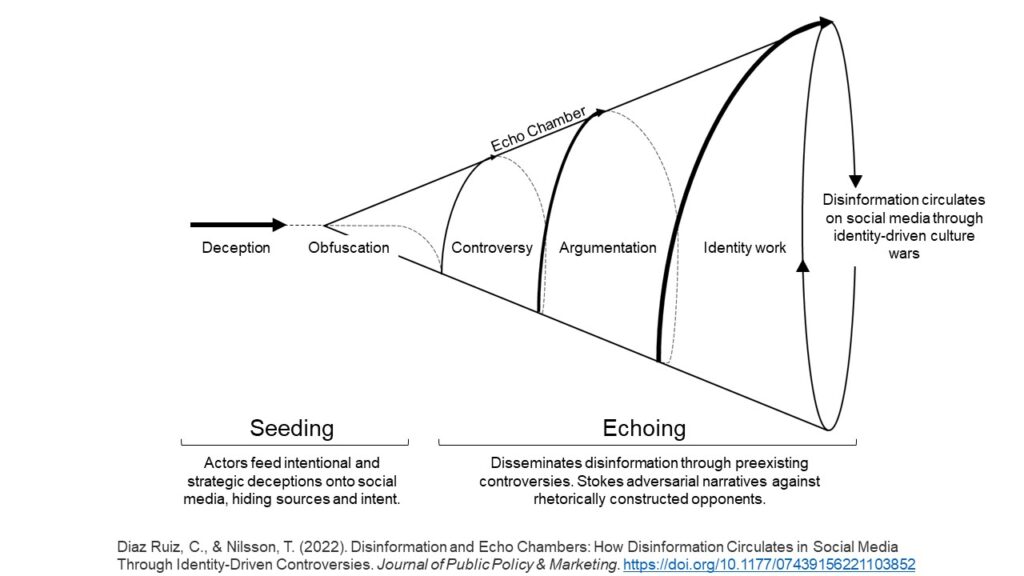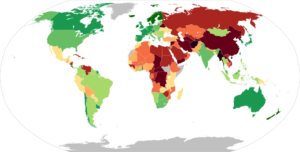Disinformation is false information deliberately spread to deceive people. In contrast, misinformation refers to inaccuracies that stem from inadvertent error. Disinformation is an managed activity in which people introduce strategic deceptions and media manipulation tactics to facilitate political, military, or commercial goals.
UNESCO and Ipsos did a survey (August-September 2023), in 16 countries, asking among other things, “Are they concerned that disinformation will impact the next campaign?” The effort found the following key points.
- 56% of internet users in the 16 countries surveyed frequently use social media as their primary source of news, surpassing television at 44%.
- Trust in traditional media remains high, with 66% of those surveyed trusting television news, 63% trusting radio news, and 61% trusting print media news.
- Internet users experience a high prevalence of disinformation on social media, with 68% indicating that disinformation is most widespread there.
- 87% of respondents expressed concern about the impact of disinformation on upcoming elections in their country, with 47% being “very concerned”.
- 67% of internet users have encountered hate speech online, with a majority believing it’s most prevalent on Facebook (58%).
- There’s a strong call for regulation, with 88% believing that both governments and regulatory bodies, and social media platforms (90%) should address disinformation and hate speech issues.
- A majority of internet users (89%) support the idea that governments and regulators should enforce trust and safety measures on social media platforms during election campaigns.
- Only 48% of surveyed citizens have reported online content related to disinformation in the context of an election campaign.
In the United States, there is no oversight of the social media platforms by the government and social media companies have actually rolled back any self-policing of content for disinformation, because it works against their business model. Their model is engagement by entertaining, not informing you. Disinformation is actually amplified by the social media platforms.
The following image illustrates a two-phase framework conceptualizing the dissemination of disinformation on social media. The first phase is “seeding,” in which actors strategically insert misleading deceptions by masquerading or obfuscating statements as legitimate…. The second phase, “echoing,” represents how disinformation circulates in echo chambers through contradictions against opponents in cultural wars and other identity-driven controversies. Participants use falsehoods, selective truths, beliefs, value judgments, and all available controversies to rhetorically enact and exploit their identity in opposition to their perceived opponents.1Diaz Ruiz, C., & Nilsson, T. (2023). Disinformation and Echo Chambers: How Disinformation Circulates on Social Media Through Identity-Driven Controversies. Journal of Public Policy & Marketing, 42(1), 18-35. https://doi.org/10.1177/07439156221103852
 Citizens in a democracy need a source of information the is not driven by the profit motive of social media platforms and is dedicated to presenting factual information for people to make good decisions. Donating to this organization will help fund research and implementation of a platform to inform and amplify your voice. Donate today, before our democracy dies!
Citizens in a democracy need a source of information the is not driven by the profit motive of social media platforms and is dedicated to presenting factual information for people to make good decisions. Donating to this organization will help fund research and implementation of a platform to inform and amplify your voice. Donate today, before our democracy dies!
